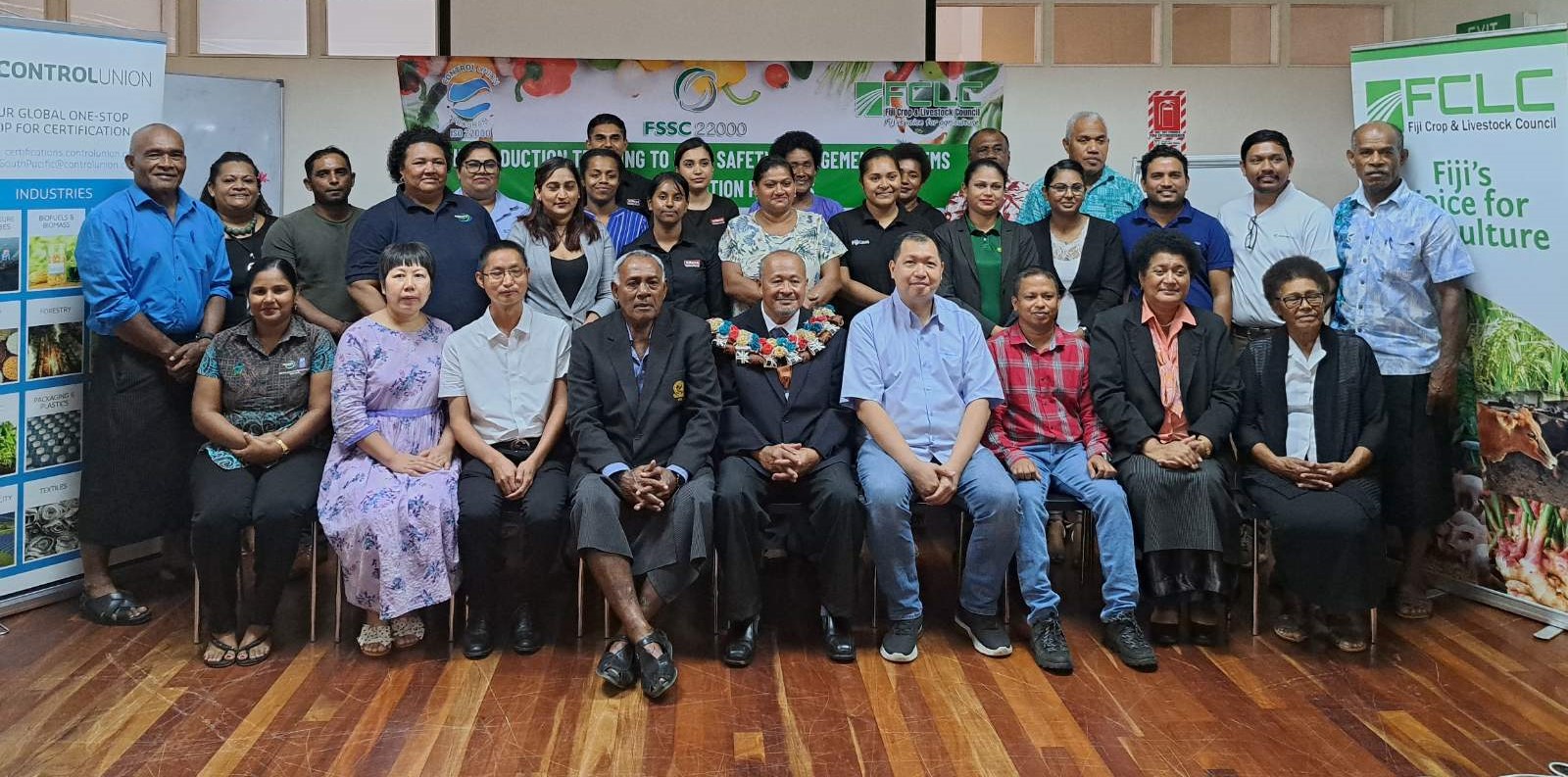Food safety is vital to boost the industry
August 23, 2023

The Control Union of Singapore, the Fiji Crop and Livestock Council, and the Ministry of Agriculture organised a Food Safety Training at the Suva Business Centre this week, as part of their ongoing efforts to address the issues related to Food Safety in Fiji under the existing Memorandum of Understanding.
While speaking to the 35 participants from the food industry, the Permanent Secretary for Agriculture and Waterways, Dr. Andrew Tukana said the Food Safety workshop is a vital step in our ongoing collective efforts to bolster the food industry in Fiji and ensure the safety and well-being of our consumers.
Dr Tukana said this workshop, designed to enhance food safety practices, has far-reaching implications that stretch across this interconnected tapestry of our food industry.
“As we all know, the food industry is a cornerstone of our nation’s economy, providing jobs and driving export revenues; however, it is not without challenges, particularly in maintaining and improving food safety standards,” said Dr Tukana.
He said the implications of these challenges are far-reaching, affecting not only public health but also the reputation of our industry on a global scale.
“Our focus on food safety resonates deeply within the heart of our agriculture sector,” said Dr Tukana.
Dr Tukana mentioned that the journey of food begins at the agri-input level, where seeds, fertilizers and other resources are carefully selected to ensure the health and quality of our crops.
“From the diligent hands of our farmers who laboriously cultivate the land, nurture the plants and bring forth the bounty of our fields to the various stages of production that transform raw materials into consumables products, each step plays an essential role in creating safe and nourishing food,” he added.
“The safety and quality of the products we offer are intrinsically tied to our reputation as a food-producing nation. This reputation satisfies the hunger of our fellow Fijians, ensures food security and graces the tables of international consumers,” he said.
Dr Tukana reminded the participants that the choices they make today, whether they pertain to food safety, climate change adaptation, or biodiversity preservation, we have the power to shape the future of our food systems and the well-being of generations to come.
“Fiji’s food businesses encounter numerous hurdles that we must collectively overcome, which include lack of comprehensive food safety practices, insufficient adherence to internationally recognised standards such as International Standards Organizations (ISO) 22000, Food Safety Systems Certification (FSSC) 22000, and Hazards Analysis Critical Control Point (HACCP), instances of food-borne illnesses and a limited awareness of the benefits associated with food safety certifications are among the key issues we face,” said Dr Tukana.
He said these challenges if left unaddressed, can erode consumer trust and tarnish the image of our food industry.
Dr Tukana also extended his heartfelt gratitude to the Union Control of Singapore that through their partnership with the Fiji Crop and Livestock Council has made the workshop possible and the participants to avail their time to attend the important training.
“Let us embark on this journey with a shared commitment to elevating our food safety standards, protecting public health, and fostering prosperity among our farmers and key players along the food supply chain,” said Dr Tukana.
-Ends-
